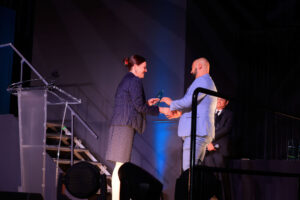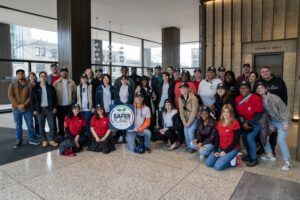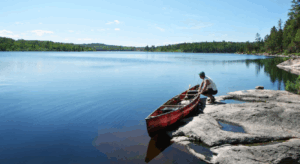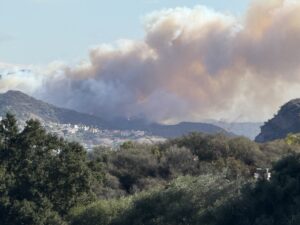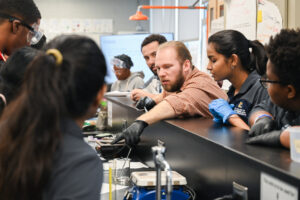The Changing Climate and Its Impact on Human Health
Just this past month, air quality index alerts in parts of the eastern and central United States have reached all-time highs, with warnings of poor air quality related to the spread of Canadian wildfire smoke. The Chemical Insights Research Institute (CIRI) of UL Research Institutes is leading research on weather changes and disasters and how they are affecting human health.
Evidence is compelling that climate and weather-related events are having a tremendous impact on human health and the built environment. As most of the U.S. is experiencing warmer temperatures, increases in weather-related disasters such as wildfires, flooding, and extreme storms are occurring. Human health is being affected with rises of heat-related illness, cardiovascular disease, asthma and allergy related illness, and stress-related disorders.
Here are a few key CIRI initiatives relating to understanding these impacts.
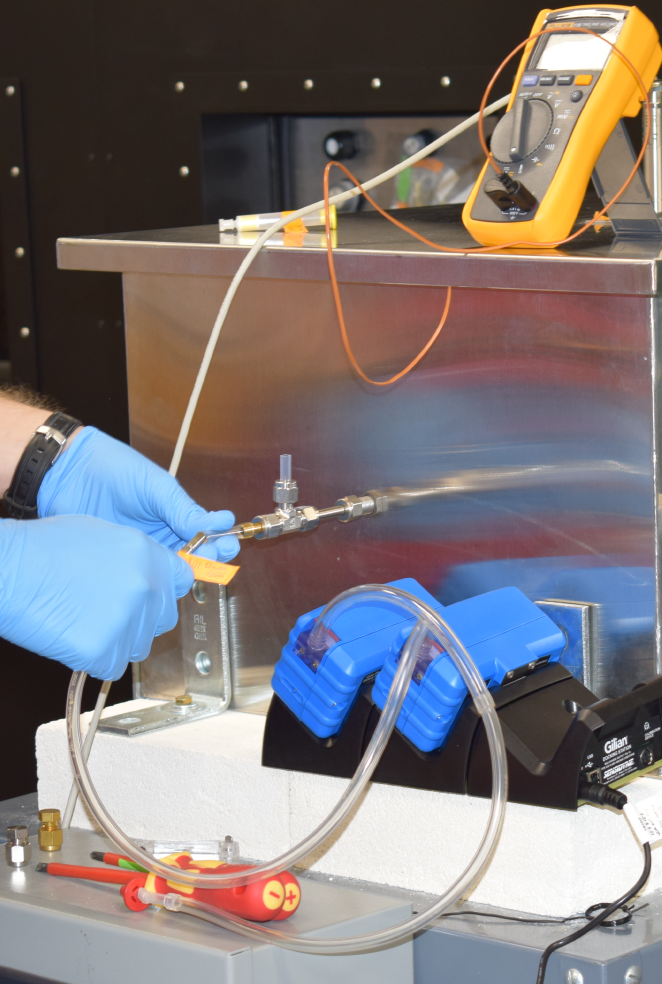
Research on extreme heat and its impact on indoor air
More extreme weather is causing our built environment to experience prolonged power outages, periods of extreme heat and humidity, material damage, and exposure to harsh cleaners and chemicals used to disinfect or clean up after disasters. CIRI’s current research shows that higher temperatures can increase chemical emissions from building materials, thus degrading indoor air quality. Chemical emissions from common indoor flooring types were found to increase over 300% with temperature changes from 25⁰C to 35⁰C, with the addition of new chemical emissions never seen before. Predicted indoor chemical levels, in some cases, exceeded guidelines for a healthy indoor environment. Read about the initial research in the Summary Report, “Extreme Weather Impact on Indoor Material Emissions.”
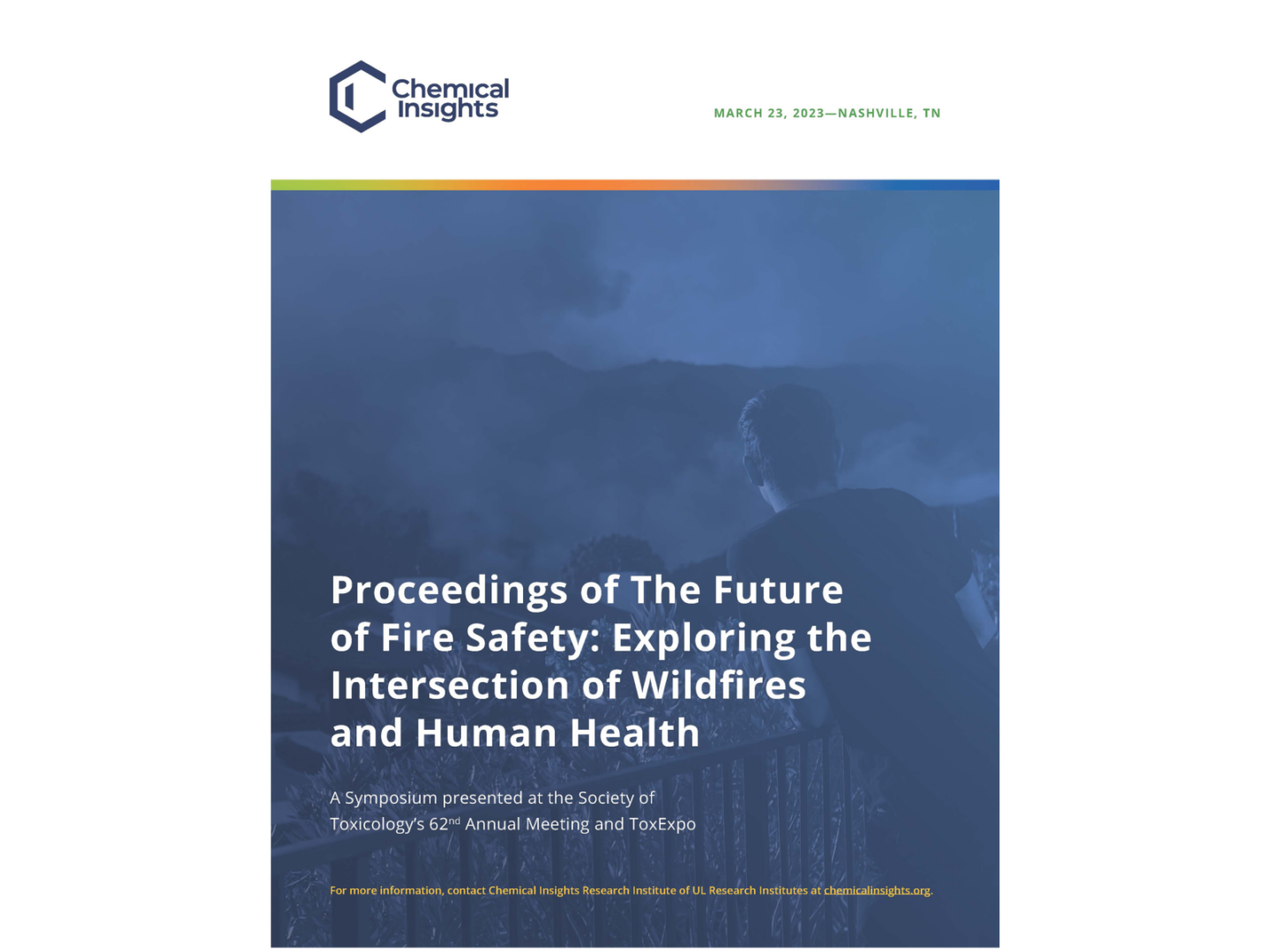
Proceedings of Society of Toxicology symposium on health effects of wildfires
At the 62nd annual meeting of the Society of Toxicology (SOT), CIRI convened an expert panel to discuss available research findings on the health impact of wildfire smoke. Participants included Dr. Marilyn Black of CIRI, Dr. Jackie Goodrich of University of Michigan, Dr. Alesia Jung of Exponent Inc, Dr. Miriam Calkins of CDC/NIOSH and Dr. Jim Zhang of Duke University. Most research to date has been conducted on wildfire specific incidences and health impacts on first responders. According to our expert panelists, there is a knowledge gap regarding the impact of wildland urban interface (WUI) fire exposures and related health outcomes, although 46 million homes and 99 million people are vulnerable to these catastrophic events. Given the unknowns of WUI fires, greater efforts to understand how urban fuel sources such as plastics may contribute to higher levels of toxic chemical exposures during WUI fires is a public health priority. Alongside chemical exposure concerns, panelists highlighted significant differences in health outcomes between structural and wildland firefighters, which may aid our understanding of how WUI exposures may affect the general population.
Read the complete report, “Proceedings of The Future of Fire Safety: Exploring the Intersection of Wildfires,” to learn about novel research findings on the impact of wildfires in places where people live and work, and health effects.

Subscribe to Foresight, the newsletter of
the Chemical Insights Research Institute
All of this news and more originally appeared in CIRI’s monthly newsletter, Foresight. Sign up to receive the newsletter and follow CIRI’s research initiatives.
Panel on climate changes and impacts on the built environment
At the national conference of the American Institute of Architects, CIRI convened an expert panel to discuss scientists’ perspectives on climate impacts, featuring Dr. Marilyn Black and Holley Henderson of CIRI, Birgitte Messerschmidt of the National Fire Protection Association, and Dr. W. Elliott Horner of UL Environment & Sustainability. The scientists discussed new research that can impact future building design for healthier spaces as the climate changes. View the presentation here: “Research Scientists Perspectives on Climate Impacts for Building Environment & Materials”
Sharing research into climate change and resiliency for health
This month’s air quality alerts from wildfire smoke impacting some of the central and eastern U.S. sparked us to send out a news alert featuring creative resources to protect air quality from smoke. Please see our latest news alert that features information on DIY air cleaners for your home or building and other actionable resources to protect health.
Our ongoing research into wildfires and the WUI is addressing chemical and particle pollution exposure and options for developing healthier and more resilient buildings and communities. To explore more, visit our Wildfires and the Wildland Urban Interface page. Keep an eye out for upcoming press releases, news alerts, and additions to our extensive Resource Library.
PUBLISHED



